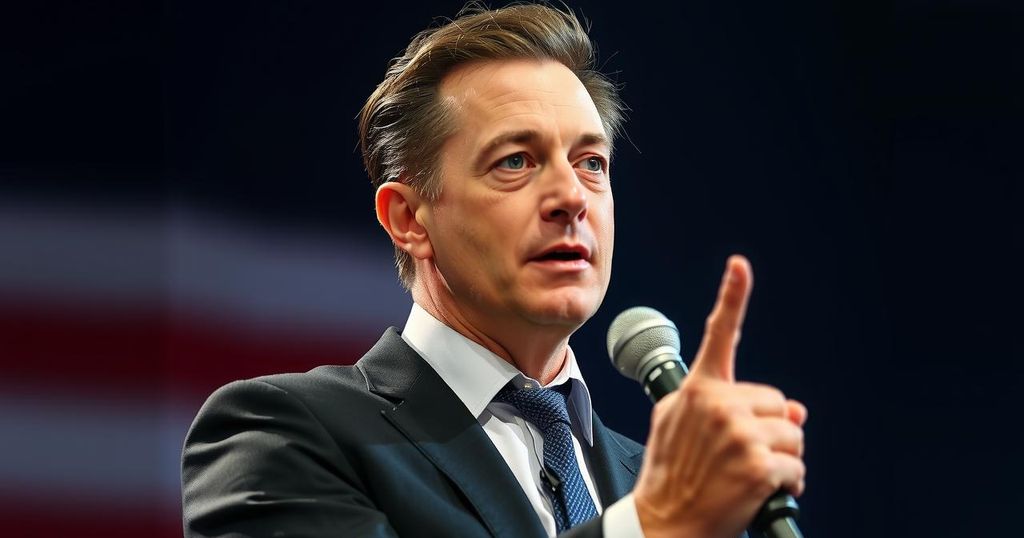Elon Musk’s Controversial Election Tactics in Support of Donald Trump
Elon Musk is utilizing financially aggressive strategies to support Donald Trump’s presidential campaign, including distributing significant amounts of money to individuals who sign petitions advocating for free speech and gun rights. His approach raises ethical concerns and echoes broader issues related to the influence of wealthy donors in American elections post-Citizens United.
In the lead-up to the November elections, Elon Musk has formulated an intriguing, albeit controversial, strategy to support Donald Trump’s campaign for the presidency. Through his political action committee, “America Pac,” he has pledged to distribute one million dollars daily until the election to individuals who sign his petition advocating for free speech and gun rights. Furthermore, Musk has previously extended monetary offers to registered voters in pivotal swing states for their signatures, escalating the amount offered to residents of Pennsylvania to one hundred dollars. While Musk’s actions may not constitute direct vote-buying, they certainly raise substantial ethical questions, as noted by UCLA law professor Rick Hasen, who argues that such arrangements can be perceived as bordering on illegal practices. Compounding this issue are reports of more insidious tactics employed by Musk’s affiliated group, Future Coalition Pac, which has been disseminating conflicting messages regarding Vice President Kamala Harris’s Middle East policies to various racial and religious voter demographics in critical swing states. This manipulation of messaging exemplifies how money has shifted from merely influencing American politics to actively distorting it based on competing narratives. The implication of big money in U.S. elections, particularly after the 2010 Citizens United ruling, has been expansive, with at least two point one billion dollars being contributed by a select few major donors this election cycle, disproportionately favoring Republican interests. Musk’s spending of approximately seventy-five million dollars to further Trump’s candidacy pales in comparison to other prominent donors such as Miriam Adelson, but reflects a clearly transactional motive. Furthermore, speculation regarding Musk’s intentions in a Trump administration encompasses both financial and political aspirations, with suggestions that he could assume a role focused on government efficiencies, ultimately directing further resources toward his businesses. In summary, Musk’s extravagant spending and questionable tactics during this election cycle signify a deepening intertwining of wealth, politics, and influence, raising important concerns about the integrity of American democracy.
The article discusses the increasing interplay between large financial donations and electoral politics in the United States, specifically highlighting Elon Musk’s efforts to financially support Donald Trump’s presidential campaign. With the approach of the November elections, Musk, through his political action committee, has adopted various aggressive strategies to secure Trump’s victory, including substantial cash incentives for supporters. This scenario is set against the backdrop of significant judicial rulings, such as Citizens United, which have facilitated the flow of unlimited political contributions, thereby raising ethical and legal questions regarding the integrity of electoral processes.
The intricate and often dubious tactics employed by Elon Musk to financially support Donald Trump’s campaign underscore a troubling trend in American politics where wealth significantly influences electoral outcomes. As this cycle unfolds, it becomes imperative to scrutinize the ethical implications of such financial maneuvers and their potential impact on the democratic process. Musk’s actions, along with those of other billionaires, highlight the need for ongoing discussions surrounding election integrity and the role of money in politics.
Original Source: www.theguardian.com




Post Comment